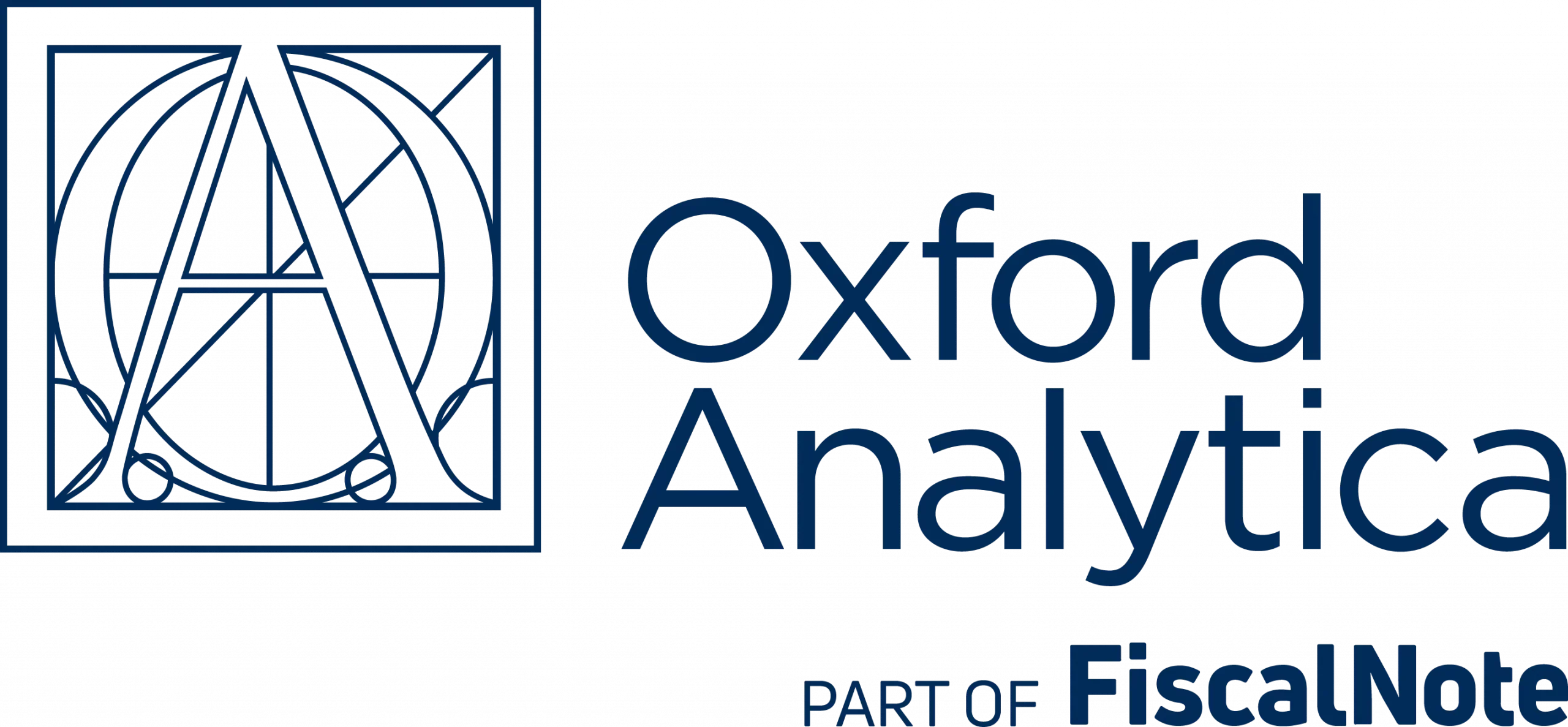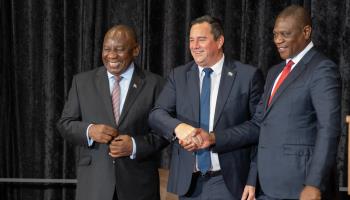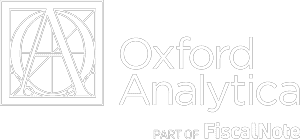Delhi is under pressure over allegations of an Indian campaign against Sikh separatists in Canada and the United States
Last month, India and Canada announced tit-for-tat diplomatic expulsions after Ottawa linked Delhi to a “targeted campaign against Canadian citizens”. Bilateral relations have been strained since September 2023, when Ottawa first alleged Indian state involvement in the killing of Sikh separatist Hardeep Singh Nijjar in British Columbia. A similar controversy — regarding the attempted killing of another Sikh separatist, Gurpatwant Singh Pannun, in New York — is testing Indian-US relations.
What next
Subsidiary Impacts
- Indian-Canadian economic ties are unlikely to be set back, but talks over a bilateral free trade agreement will remain on hold for now.
- Delhi-Washington engagement will deepen during Donald Trump’s second term as US president.
- Protests by Sikh groups outside Indian diplomatic missions will continue to pose a security challenge for Delhi and the host countries.
Analysis
Sikh separatist insurgency was a substantial problem for India in the 1980s and early 1990s. The movement is now largely in check, but support for it continues, especially among fringe elements of the Sikh diaspora.
The separatists champion an independent Sikh homeland in South Asia that they refer to as ‘Khalistan’, meaning ‘Land of the Khalsa’. ‘Khalsa’ is the term used to describe the community of fully initiated Sikhs (see INDIA: Punjab security threat remains in check – June 14, 2023).
Canadian matter
Delhi is unlikely to make much effort to revive relations with Ottawa while Canadian Prime Minister Justin Trudeau remains in power. It accuses Trudeau’s government of levelling allegations without evidence and pandering to an “anti-India separatist agenda” for “narrow political gains” (see CANADA: Rift with India has domestic consequences – September 22, 2023).
Sikhs make up around 2% of Canada’s population. Pro-Khalistan activists are a minority among them.
Nijjar, a Canadian citizen designated as a terrorist in India, was shot dead in Surrey, near Vancouver, in June 2023.
Three months later, Trudeau told Canada’s parliament that there were “credible allegations” linking the Indian government to the killing. Delhi strongly denied the claim and expelled a senior Canadian diplomat in response to Ottawa’s expulsion of one of its top officials in Canada.
In October 2023, Canada withdrew 41 diplomats from India after warnings from Delhi about removal of diplomatic immunity.
Bilateral tensions took a turn for the worse on October 14 this year:
- Canada announced the expulsion of six Indian diplomats and consular officials, including High Commissioner Sanjay Kumar Verma.
- India announced the expulsion of six Canadian diplomats, including Acting High Commissioner Stewart Ross Wheeler.
- Delhi said earlier in the day that it would withdraw Verma and other “targeted diplomats and officials”, fearing for their safety, after reporting receipt of a diplomatic communication from Ottawa suggesting they were persons of interest in an investigation, which it described as “preposterous”.
- Ottawa said it gave notice of its expulsions before Delhi announced the withdrawals.
Trudeau said there was “compelling evidence” that agents of the Indian government were involved in “criminal activities” on Canadian soil.
The prime minister repeated this allegation on October 16 at a public inquiry into foreign interference in Canada. He said Indian diplomats collected information on Canadians who opposed the Indian authorities and then passed that to Delhi, eventually resulting in violence by criminal organisations “against Canadians on the ground”.
At an October 29 meeting of a parliamentary standing committee on public safety and national security, Canadian Deputy Foreign Minister David Morrison accused Indian Home Minister Amit Shah of being behind the alleged campaign. Reporting on the October 14 diplomatic expulsions, The Washington Post said Canadian officials identified Shah as a senior official in India authorising intelligence-gathering missions and attacks. Morrison told the committee that a journalist asked him if Shah was the official and that he confirmed this.
Delhi said on November 2 that it filed a protest over this accusation with the Canadian embassy the previous day. It described the reference to Shah as “absurd and baseless”.
On November 4, Indian Prime Minister Narendra Modi took to X to condemn a November 3 attack by pro-Khalistan protesters on a Hindu temple in Ontario hosting an Indian consular event. He referred to “cowardly attempts” to intimidate Indian diplomats and said Delhi expected the Canadian government to “ensure justice and uphold the rule of law”.
The negative sentiment between India and Canada will hurt tourism between the countries. Indian consular services in Canada and Canadian consular services in India will be limited in the short-to-medium term at least, hindering visa issuance. India briefly suspended visa services for Canadian citizens following the outbreak of the row last year.
Fewer Indians may travel to Canada to study. India has been the largest source of foreign students in Canada in recent years.
US situation
India and the United States are seemingly managing to limit the diplomatic fallout from the Pannun controversy. Delhi would in any case be reluctant to respond to Washington with the sort of pushback it has directed at Ottawa, given the heightened importance of bilateral ties. The less confrontational way Washington has broached the issue is also a factor (see INDIA/US: Sides will overcome strain in ties – January 9, 2024).
On October 17, the US Justice Department charged Vikash Yadav, a former Indian intelligence officer, with directing a foiled plot to assassinate Pannun in New York City (the indictment does not mention the intended victim’s name, but his identity is clear). Pannun is a US-Canadian citizen designated as a terrorist in India.
In November 2023, the department charged Indian national Nikhil Gupta in the case, accusing him of preparing the plot with an unnamed Indian government official (last month’s indictment makes clear that this is Yadav). Gupta was arrested in Czechia in June 2023 and extradited to the United States in June this year.
Shortly before Gupta’s indictment, India formed a ‘high-level enquiry committee’ to examine the allegations.
On October 15, committee members met US officials in Washington. The US State Department described their talks as “productive”. The Indian side said the co-conspirator mentioned in the November 2023 indictment was no longer a government employee.
The Delhi Police arrested Yadav last December in a kidnapping and extortion case. He was detained at the capital’s Tihar Jail before being released on bail in April.
Indian Foreign Minister S Jaishankar said at a media event in March that it was “unfair” to “lump” the Canadian and US cases together. He argued that the United States — unlike Canada, in his view — had not given “space” to “violent, extremist views”.
Wider picture
Trudeau will keep urging Canada’s Western partners to support Ottawa’s stance, but they are unlikely to exert any overt pressure on India.
Canada is especially looking to its fellow members of the Five Eyes intelligence alliance: Australia, New Zealand, the United Kingdom and the United States. It says information shared by allies in this network is part of the intelligence suggesting Indian government involvement in the Nijjar killing.
Canberra, Wellington, London and Washington will continue to express concern regarding Ottawa’s allegations against Delhi.

Canadian Prime Minister Justin Trudeau at a press conference after Ottawa’s expulsion of six Indian diplomats and consular officials on October 14 (Dave Chan/AFP/Getty Images)
Authored by:

Dr Joydeep Sen
Asia Pacific


